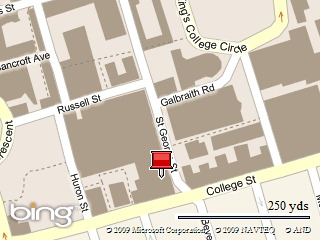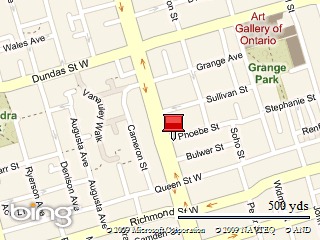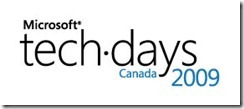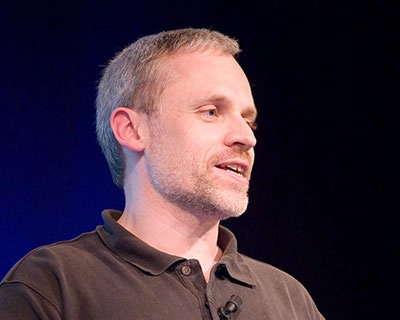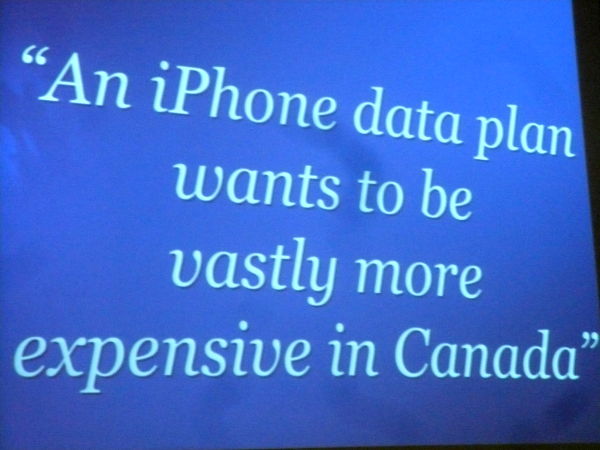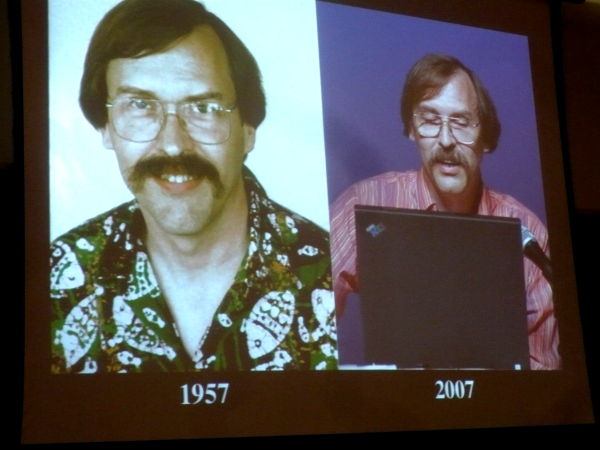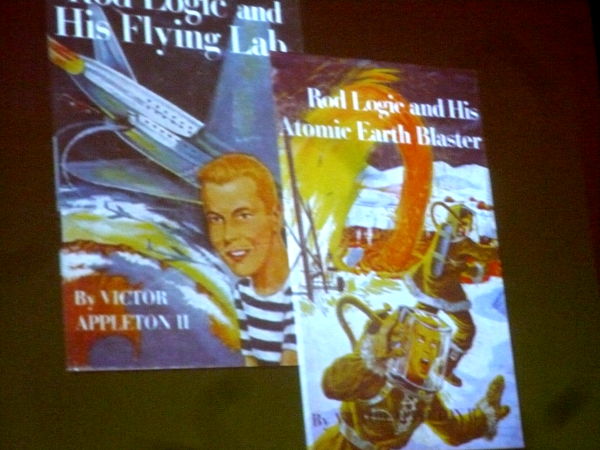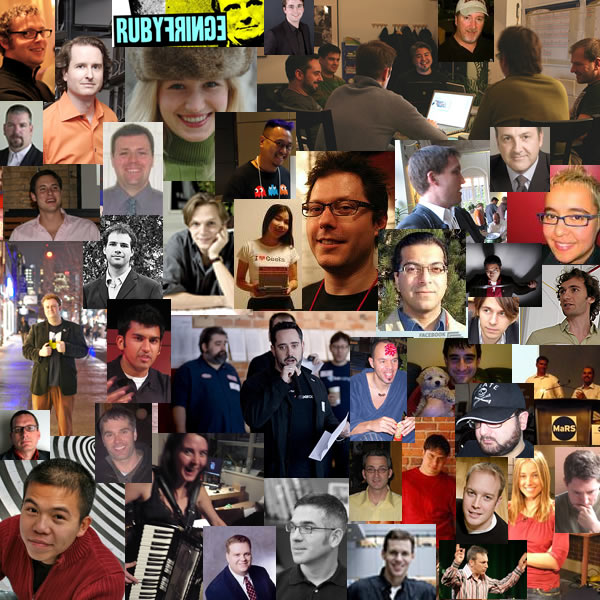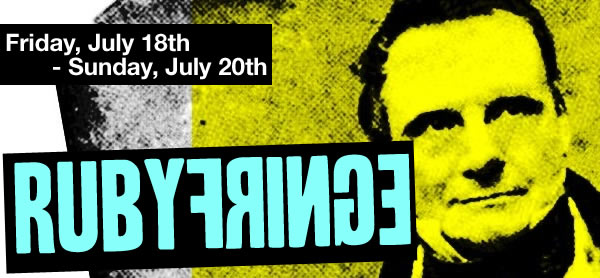This article also appears in Canadian Developer Connection.
It’s gonna be a busy week for me — there’s a lot going on!
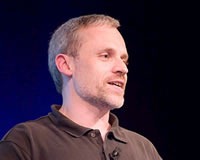
Monday: Damian Conway and The Missing Link
On Monday evening, I’ll be catching Damian Conway’s presentation, The Missing Link. There’s nothing quite like a Damian Conway presentation – they’re equal parts computer science, mathematical digression, history lesson, physics lecture, pop-culture observation, Perl module code walkthrough and stand-up comedy routine.
If you’re up for an entertaining and enlightening presentation by one of the bright lights of the open source world and you’re going to be in Toronto tonight, you should catch this one. There’s no charge for admission and no registration process – just show up at University of Toronto’s Bahen Centre for Information Technology (40 St. George Street, west side, just north of College) at 7:00 p.m. and head to room 1160 (the big lecture theatre near the back of the first floor).
Tuesday: DemoCamp 21 with Special Guest John Udell
 Tuesday evening brings the 21st edition of DemoCamp, which I like to describe as “show and tell for the bright lights of the Toronto-area tech community”. It’s a chance for people, from hobbyists working on a pet project to enterprise software developers building something globe-spanning to show their peers their projects in action or share an idea. It’s put together by my fellow Microsoftie David Crow (who’s also in Microsoft Canada’s Developer and Platform Evangelism group); I cost-host the event with Jay Goldman.
Tuesday evening brings the 21st edition of DemoCamp, which I like to describe as “show and tell for the bright lights of the Toronto-area tech community”. It’s a chance for people, from hobbyists working on a pet project to enterprise software developers building something globe-spanning to show their peers their projects in action or share an idea. It’s put together by my fellow Microsoftie David Crow (who’s also in Microsoft Canada’s Developer and Platform Evangelism group); I cost-host the event with Jay Goldman.
This one’s going to be a special one for a couple of reasons. Firstly, this will be the first DemoCamp held at the Rogers Theatre. Second, Jon Udell, Microsoft Tech Evangelist extraordinaire, will be there.
The presentations on the schedule are:
- You can’t pick your neighbours, but you can pick your neighbourhood!
Saul Colt, Zoocasa - ArtAnywhere : Where Lost artwork meets Empty walls
Christine Renaud, ArtAnywhere - Bringing Social Media to Contractors
Brian Sharwood, HomeStars - Create a BlackBerry/iPhone Mobile App in 5 Minutes
Alan Lysne, Cascada Mobile - Stories Told Together – Introducing Social Cards
Shaun, MacDonald, MashupArts - WeGoWeGo.com: semantic search for city events
Dan Wood, WeGoWeGo.com - Guestlist – online event management
Ben Vinegar, Guestlist - guiGoog: Advanced Visual Power Search
Jason Roks, GuiGoog
Alas, this event is sold out. I’ll take notes and post them on this blog.
Wednesday: Science 2.0
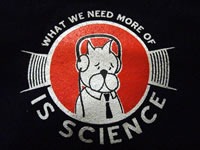
The Science 2.0 conference takes place on Wednesday afternoon. Its topic: how the web and computers can radically change and improve science. It takes place at the MaRS Centre and the presentations are:
- Choosing Infrastructure and Testing Tools for Scientific Software Projects
Titus Brown - A Web Native Research Record: Applying the Best of the Web to the Lab Notebook
Cameron Neylon - Doing Science in the Open: How Online Tools are Changing Scientific Discovery
Michael Nielsen - Using “Desktop” Languages for Big Problems
David Rich - How Computational Science is Changing the Scientific Method
Victoria Stodden - Collaborative Curation of Public Events
Jon Udell
As with DemoCamp, this event is a popular one and is sold out. I’ll take notes and blog the conference.
Thursday: Windows 7 Blogger Event
I’ll be helping out at a gathering of Toronto bloggers on Thursday, where we’ll be showing them Windows 7.
Friday: Coffee and Code
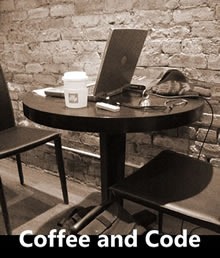 If it’s Friday, it must be time for Toronto Coffee and Code! It’s the day when I set up shop at a cafe – usually the Dark Horse – and work from there, making myself available to answer questions, hear your opinions and comments and chat. I’ll talk about Microsoft, our tools and tech, the industry in general, whatever!
If it’s Friday, it must be time for Toronto Coffee and Code! It’s the day when I set up shop at a cafe – usually the Dark Horse – and work from there, making myself available to answer questions, hear your opinions and comments and chat. I’ll talk about Microsoft, our tools and tech, the industry in general, whatever!
This Friday’s Toronto Coffee and Code will take place at the Dark Horse Cafe (215 Spadina) from 1 p.m. to 6 p.m.. Feel free to drop by!
Other Stuff Going On This Week
- Along with the other people on the team, I’m helping out with the preparatory work on the TechDays conference, which will be taking place in seven cities across Canada this fall.
- I’m also working on ongoing series of articles covering stuff like coding fundamentals, ASP.NET MVC, mobile and some other stuff that I have to keep on the down-low for the time being.
- And it’s not too late for me to start working on the ASP.NET MVC presentation that I’m doing with ObjectSharp’s Barry Gervin at the Toronto edition of Stack Overflow’s DevDays conference in October.
